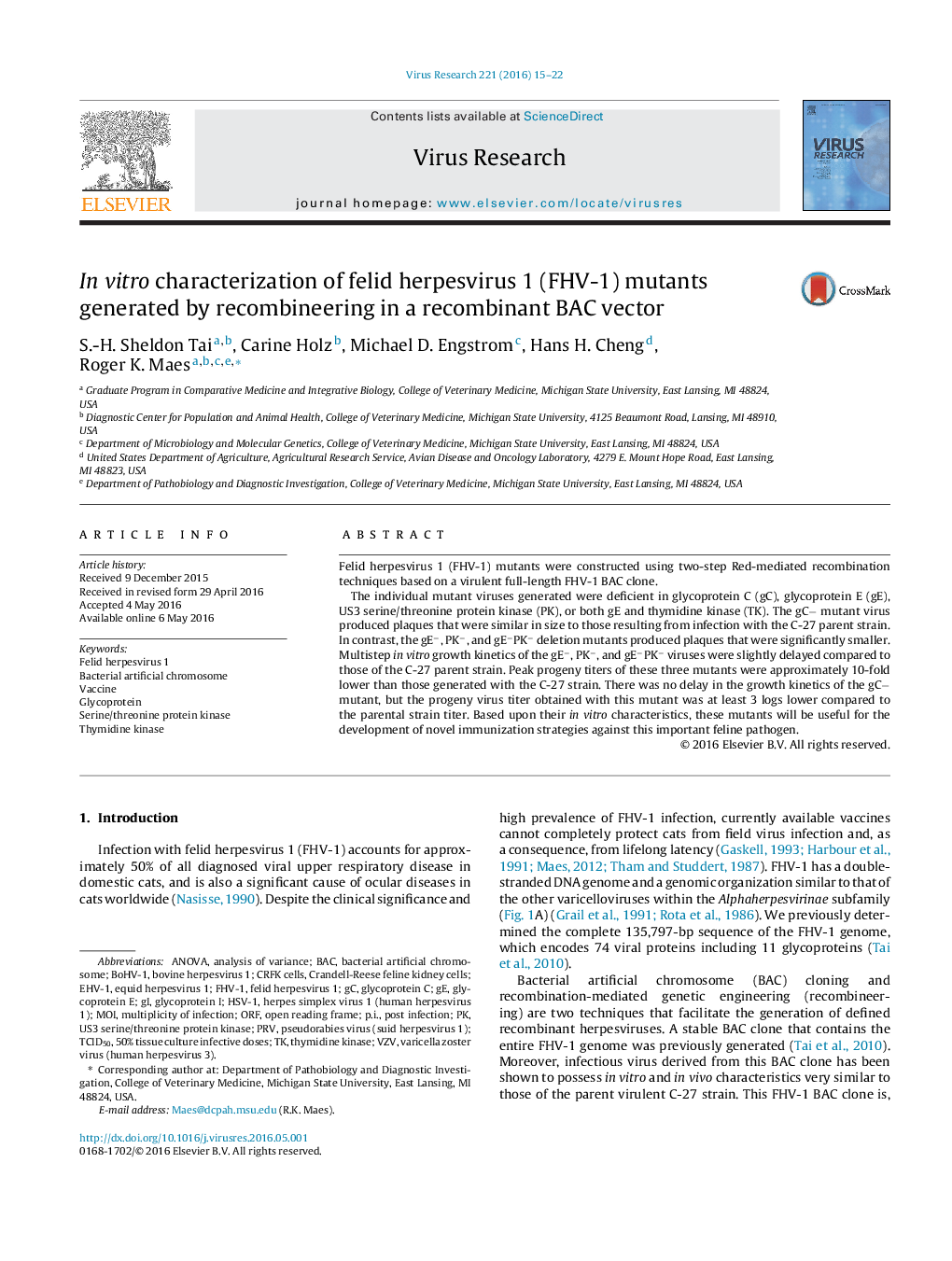| Article ID | Journal | Published Year | Pages | File Type |
|---|---|---|---|---|
| 3427854 | Virus Research | 2016 | 8 Pages |
•FHV-1 mutants deficient in gC, PK, gE, or both gE and TK have been generated by BAC clone recombineering.•PK−, gE−, and gE−TK− mutants produced smaller plaques than the parent strain.•Except for the gC− mutant, the in vitro growth characteristics of the mutants were similar to those of the parent strain.•These mutants will be useful for molecular pathogenesis studies and vaccine development.
Felid herpesvirus 1 (FHV-1) mutants were constructed using two-step Red-mediated recombination techniques based on a virulent full-length FHV-1 BAC clone.The individual mutant viruses generated were deficient in glycoprotein C (gC), glycoprotein E (gE), US3 serine/threonine protein kinase (PK), or both gE and thymidine kinase (TK). The gC− mutant virus produced plaques that were similar in size to those resulting from infection with the C-27 parent strain. In contrast, the gE−, PK−, and gE−PK− deletion mutants produced plaques that were significantly smaller. Multistep in vitro growth kinetics of the gE−, PK−, and gE−PK− viruses were slightly delayed compared to those of the C-27 parent strain. Peak progeny titers of these three mutants were approximately 10-fold lower than those generated with the C-27 strain. There was no delay in the growth kinetics of the gC− mutant, but the progeny virus titer obtained with this mutant was at least 3 logs lower compared to the parental strain titer. Based upon their in vitro characteristics, these mutants will be useful for the development of novel immunization strategies against this important feline pathogen.
